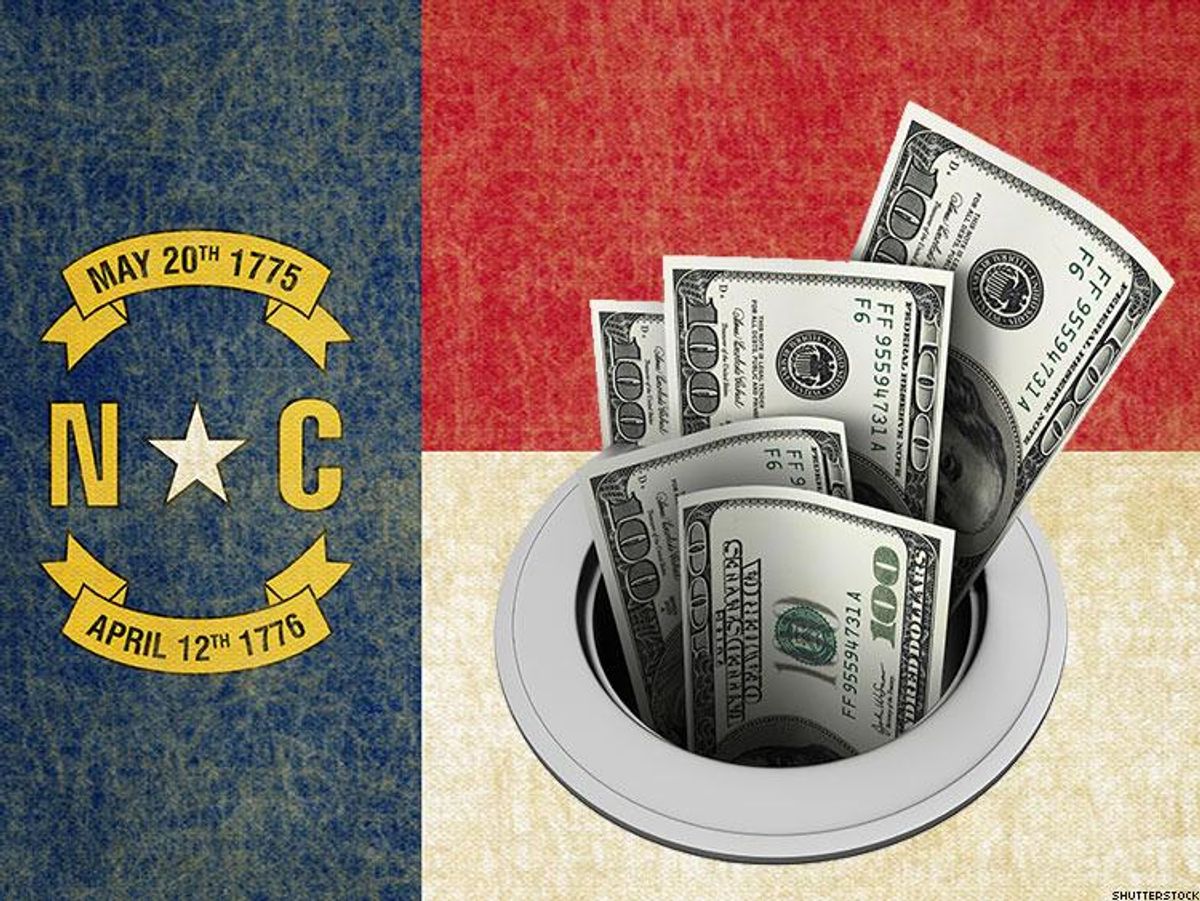All Rights reserved
By continuing to use our site, you agree to our Private Policy and Terms of Use.
North Carolina is being dealt a quarter-million dollar blow to its local economy after yet another company has opted not to do business with the ailing state over House Bill 2.
CoStar Group, a Washington, D.C.-based real estate analytics firm, has opted against opening a new operations center in Charlotte, one that would add 730 jobs to the local economy. The move would have reportedly meant a $250 million investment in the city, but CoStar announced plans on Monday to move to Richmond, Va., instead. Atlanta and Kansas City, Mo., had also been in the running for the center.
CoStar's commercial real estate broker, David Dorsch, told the Charlotte Business Journalthat the company didn't want to be associated with discrimination. "The primary reason they chose Richmond over Charlotte was HB 2," he said.
CoStar, however, is remaining tight-lipped about the decision.
"We will not comment on Charlotte," the company said in a press release. "We will affirm LGBT rights and the rights of every one of our employees and those in the community are a very high priority and core to our firm's values."
The business is just the latest to pull out of North Carolina in response to HB 2, a virulently anti-LGBT law passed in March. Introduced, debated, and signed in a single day, the legislation forces transgender people to use public restrooms that do not correspond with their gender identity in schools and government buildings. The law also keeps cities and counties from enacting LGBT-inclusive nondiscrimination laws.
Following the bill's passage, over 200 companies -- including Apple, Google, and Microsoft spoke out against the measure in an open letter imploring North Carolina Gov. Pat McCrory to strike down HB 2.
Since then, the state has lost numerous contracts, sporting events, and concerts over the law.
In April, PayPal and Deutsche Bank both nixed planned expansions to North Carolina, which would have injected 650 total jobs into the state economy. Losing the two bids also cost the Tar Heel State, which once boasted the nation's fastest-growing economy, more than $12 million dollars in future investments.
Musicians like Bruce Springsteen, Ringo Starr, Pearl Jam, and Boston pulled planned concerts from North Carolina, while Broadway producer Stephen Schwartz -- the man behind Wicked and Godspell -- said he will no longer allow his musicals to be performed in the state. Furthermore, Lionsgate relocated the production of Crushed to Canada, a major blow to a state that is a prime shooting location for film and television producers.
Collegiate sporting associations like the NCAA and the ACC have nixed championship games in North Carolina, while the NBA has opted to move the All-Star game to New Orleans. The event was scheduled to be held in Charlotte in February.
According to Charlotte real estate developer Johnny Harris, these losses are the tip of the iceberg for the state, which is estimated to lose $5 billion for every year that HB 2 remains on the books. Harris told The Charlotte Observerthat "for every one company that decides to relocate to North Carolina that another 10 probably are not."
"I've been saying to anyone that would listen to me from the very first day that it's a train wreck," Harris stated earlier this year.
In a press release, Equality North Carolina referred to the loss of CoStar as well as the myriad business opportunities the state has lost as a result of HB 2, as a "travesty," but Commerce Secretary John Skvarla told the Observer Monday that the business boycott has had little impact on the state.
"[HB 2] hasn't moved the needle one iota," he said. Skvarla added that North Carolina is in the "best position" it has ever been in financially.












































































